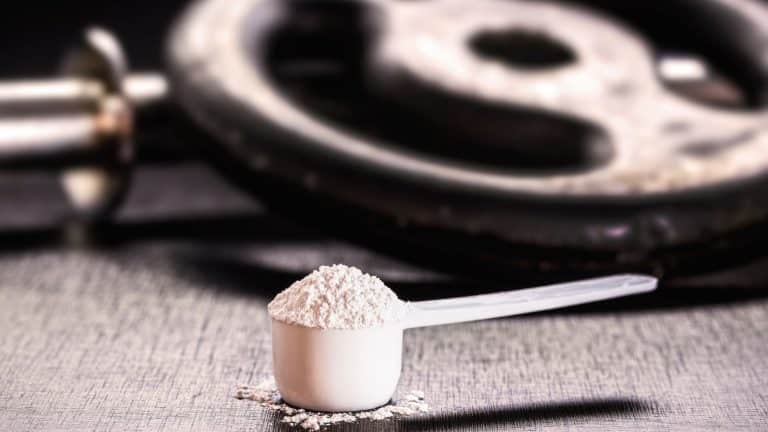How Stress Affects Your Testosterone Output
If you’re stressed, your testosterone levels may be taking a hit. Read up and learn how stress affects your testosterone output here, and why it’s important for your health and wellbeing to tackle a stressful lifestyle.
There is a really strong relationship between chronic stress and testosterone production. This can cause a great many health concerns, as testosterone output is central to your overall wellbeing, especially for men.
Chronic stress has also become increasingly prevalent in our modern lives, with this impact underpinning a broader shift towards lower testosterone output in the populace as a whole.
If you want to optimise your wellbeing, you need to get your head around the effects of chronic stress on testosterone production. You will, ultimately, need to do what you can to bring your stress levels down, allowing room for your testosterone levels to better optimise.
Stress and your testosterone output
Chronic stress can impact your testosterone production in different ways. The following six are amongst the main ways in which it can do so, each of which can cripple your overall health and wellbeing.
1. Increased cortisol levels

Cortisol levels enjoy a bit of an inverse relationship with testosterone – the higher one gets, the lower the other gets, very broadly speaking. As such, heightened cortisol levels can lead to incredibly depleted testosterone levels.
This matters for stress, of course. Cortisol is, after all, the ‘stress hormone’, intimately connected with stress and anxiety. Stress triggers cortisol release. This is generally a good thing.
However, chronic stress can lead to excessive cortisol output, which in turn can disrupt the normal balance of hormones in the body. As above, this can end up leading to decreased testosterone levels.
Cortisol inhibits testosterone production by suppressing the release of luteinising hormone (LH) from the pituitary gland, which is responsible for stimulating testosterone production in the testes. A well as this, cortisol can impair testicular testosterone synthesis by affecting the Leydig cells – a primary source of testosterone – in the testes.
Increased cortisol levels can also bolster enzyme aromatase activity, an important enzyme that helps to convert testosterone to oestrogen. This can further disrupt what is really often quite a delicate balance between testosterone and oestrogen levels in your body.
2. Suppressed luteinising hormone (LH) secretion
The suppression of luteinising hormone (LH) secretion will have long-term impacts on testosterone production. LH plays a critical role in testosterone production. It’s released from the pituitary gland and acts on the testes, stimulating the Leydig cells to produce testosterone.
However, when stress becomes chronic, it can disrupt the normal pulsatile release of LH, leading to suppressed LH secretion. This can happen as a result of a few different mechanisms.
One of the key factors is the dysregulation of the hypothalamic-pituitary-adrenal (HPA) axis, which is responsible for coordinating the body’s response to stress. During stressful situations, the hypothalamus releases CRH (corticotropin-releasing hormone), which signals the pituitary gland to release adrenocorticotropic hormone (ACTH).
ACTH then stimulates the release of cortisol from the adrenal glands. This is all part of the stress response mechanism. However, in chronic stress, HPA axis dysregulation can lead to prolonged elevation of cortisol levels.
Elevated cortisol levels can negatively feedback on the pituitary gland and hypothalamus, inhibiting the release of GnRH (gonadotropin-releasing hormone) and subsequently suppressing LH secretion. The reduced LH levels directly impact the Leydig cells’ ability to produce testosterone, ultimately contributing to lower testosterone levels.
In this way, HPA axis disruption in chronic stress can interfere with the normal hormonal signalling required for testosterone production.
LH acts as a primary driver of testosterone synthesis in the testes, meaning this disruption can be particularly ruinous to your testosterone output. Without sufficient LH stimulation, the Leydig cells may produce less testosterone, leading to decreased levels of this hormone in the body.
3. Reduced testicular testosterone production

Chronic stress can impair testicular testosterone synthesis by affecting the Leydig cells in the testes. As we’ve seen already, the testes’ Leydig cells are responsible for testosterone production. Impairing them can therefore obviously result in diminished testosterone output.
Studies have shown that chronic stress can disrupt the endocrine system and affect the Leydig cells’ healthy functioning. This disruption is often a result of the hypothalamic-pituitary-adrenal (HPA) axis’ dysregulation, which we have already seen is involved in the stress response.
This dysregulation can lead to elevated cortisol levels, along with everything that spells a problem for your testosterone output.
4. Increased aromatase activity
Chronic stress – elevated cortisol levels – can lead to increased aromatase activity. Aromatase is an enzyme responsible for converting testosterone into oestrogen.
This can result in a decrease in testosterone levels relative to oestrogen levels – both enjoy something of an imperfect inverted relationship, much like testosterone and cortisol.
Aromatase is mainly found in adipose tissue, but is also present in other tissues, including the testes. When aromatase activity is upregulated, more testosterone is converted into oestrogen, resulting in a relative decrease in testosterone levels compared to oestrogen levels.
The increase in oestrogen relative to testosterone can have various effects on the body. While oestrogen is important for certain physiological processes, an imbalance between oestrogen and testosterone can lead to decreased libido, muscle loss, and changes in body composition.
5. Impaired HPG axis function
Increased testosterone conversion to oestrogen can impact the hypothalamic-pituitary-gonadal (HPG) axis. Heightened oestrogen levels can suppress LH release, as well as the release of follicle-stimulating hormone (FSH) from the pituitary gland.
This can all lead to reduced testosterone output alongside reduced testicular function.
This hypothalamic-pituitary-gonadal (HPG) axis impairment can be significant – the HPG axis is responsible for regulating testosterone production, after all. This disruption in communication between the hypothalamus, pituitary gland, and testes can absolutely devastate testosterone production.
The hypothalamus releases gonadotropin-releasing hormone (GnRH), which stimulates the pituitary gland to produce follicle-stimulating hormone (FSH) and LH.
LH, in turn, stimulates the Leydig cells in the testes to produce testosterone, as we have seen, whilst FSH is involved in sperm production.
Prolonged stress can disturb this communication within the HPG axis. Increased levels of cortisol decrease the secretion of GnRH from the hypothalamus. This, in turn, reduces LH and FSH production in the pituitary gland.
The decrease in LH levels hampers testosterone production in the testes. Additionally, cortisol can directly inhibit testosterone synthesis by interfering with the activity of enzymes involved in testosterone production, such as 17α-hydroxylase and 17,20-lyase.
The combined effect of disrupted hypothalamic-pituitary communication, decreased LH and FSH levels, and direct inhibition of testosterone synthesis can ruin your testicular function whilst at the same time greatly diminishing testosterone production.
6. Reduced sexual function and libido
Chronic, ongoing, high stress levels can significantly impair your sexual health and desire, your libido and sexual function. In fact, these are two of the most common symptoms of chronic stress.
They are also common consequences of testosterone. In fact, one of the key factors contributing to the reduction in sexual function and libido is the decrease in testosterone levels – testosterone plays a crucial role in sexual desire and performance in both men and women.
Lower testosterone levels can lead to a decrease in sexual desire, arousal, and overall sexual satisfaction. Testosterone is directly involved in regulating libido by promoting sexual thoughts, fantasies, and motivation.
Thus, a decline in testosterone can dampen sexual desire and lead to a decrease in sexual activity.
In conclusion

It all really boils down to cortisol – or, at least, a lot of it does. Cortisol spikes when we are put under stress, and often stays spiked during extended periods of chronic stress and anxiety.
This is where it gets us. A little stress is good; a little cortisol is good. Over time, however, it can have a disastrous effect on our health, including on our testosterone output.
It can have a severely negative effect on both testosterone production and sexual function. Prolonged exposure to high levels of stress disrupts the delicate balance of hormones in the hypothalamic-pituitary-gonadal (HPG) axis, leading to decreased testosterone production.
This, in turn, can have a significant impact on sexual desire, arousal, and overall sexual satisfaction.
Reduced sexual function and libido are often accompanied by other stress-related symptoms, including the likes of anxiety, depression, and fatigue. You really do need to address and manage stress effectively to minimise these negative effects and the overall impact stress has on your health and wellbeing.
Try engaging in stress-reducing activities – think of the likes of regular exercise, meditation, therapy, time spent outdoors in nature, and limiting any known stressors. These can all be incredibly helpful in mitigating the harmful effects of chronic stress on testosterone output.
If you’re struggling with persistent, chronic stress, or are worried about your hormone balance, it’s always a good idea to talk to your healthcare provider. They will be able to run any necessary tests and help you create a long-term, balanced treatment plan.








